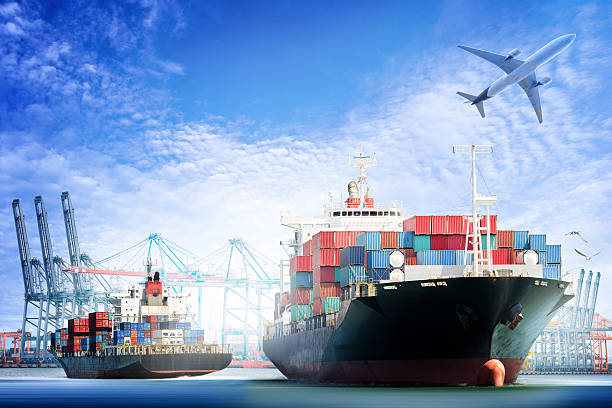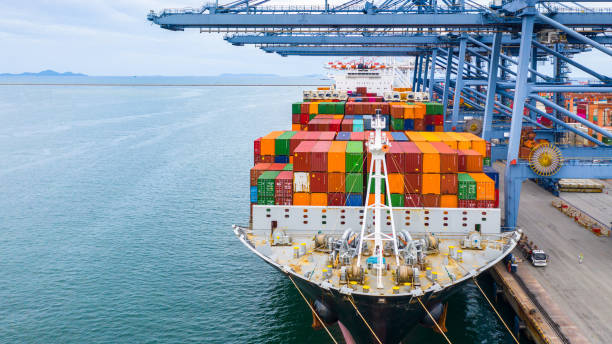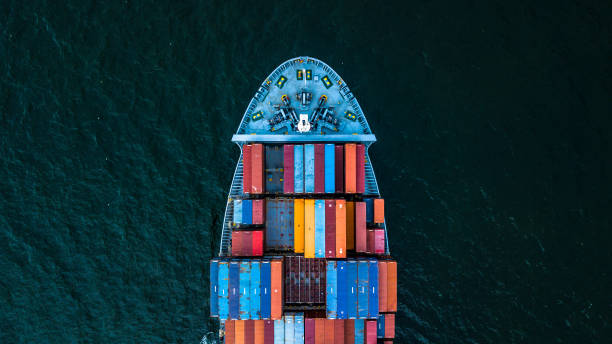International trade, the exchange of goods and services across national borders, is a cornerstone of the global economy. However, while it offers numerous benefits, there are also several significant disadvantages that should not be overlooked. This article aims to shed light on these disadvantages, focusing on areas such as economic impacts, political and social concerns, and environmental repercussions. Through a detailed examination, we will reveal why balancing the pros and cons of international trade is essential for sustainable economic growth. Determining when to seek a trade license renewal in the context of international trade regulations will also be touched upon. Let’s delve into the complexities of international trade to better understand its drawbacks.
Economic disadvantages
Job losses
One of the most profound disadvantages of international trade is the potential for job losses within domestic industries. As companies pursue cheaper labor markets abroad, many domestic employees may find themselves unemployed. This phenomenon is particularly evident in the manufacturing sector, where labor-intensive jobs are often transferred to countries with lower labor costs. Consequently, this can lead to a decrease in job opportunities and increased unemployment rates in the home country. Furthermore, the ripple effects on local economies can be severe, as laid-off workers have less disposable income to spend, thereby affecting other businesses and services.
Trade deficits
Trade deficits occur when a country imports more goods and services than it exports. While occasional trade deficits can be manageable, persistent deficits can pose serious economic risks. For example, a consistent trade deficit can lead to increased national debt and dependency on foreign investments. This situation may drive policymakers to consider protectionist measures, which can further complicate international trade relationships. Moreover, the imbalance can weaken the domestic currency, making imports more expensive and exacerbating inflation. These economic pressures can lead to a cycle of financial instability that is difficult to escape.
Market volatility
International trade can contribute to economic instability through market volatility. Global trade flows are subject to a variety of factors, including geopolitical tensions, natural disasters, and shifts in consumer demand. Currency fluctuations can also have a significant impact, as they affect the cost of imports and exports. For instance, a strong domestic currency can make a country’s exports less competitive, while a weak currency can increase the cost of imports. Such volatility can make it challenging for businesses to plan and budget effectively, leading to potential financial losses. Here’s a table summarizing the principal economic disadvantages:
| Disadvantage | Impact |
|---|---|
| Job Losses | Increased unemployment, decreased local economic activity |
| Trade Deficits | Increased national debt, weakened domestic currency |
| Market Volatility | Financial instability, unpredictable currency fluctuations |

Political and social disadvantages
International trade agreements often require countries to conform to rules that may limit their policy-making autonomy. For instance, certain trade deals might necessitate changes in local laws to meet international standards, thereby reducing a nation’s control over its own regulations. This loss of sovereignty can be a significant drawback, especially for smaller countries that may have less negotiating power. These agreements can sometimes lead to controversial policies that do not align with local needs or priorities. In addition, the enforcement of trade agreements may involve international bodies, further diluting national sovereignty.
Cultural impact
Another disadvantage of international trade is its impact on culture. Global trade can lead to cultural homogenization, where local traditions and customs are overshadowed by global influences. For instance, the widespread availability of international media and consumer products can erode local culture. This can result in the loss of unique cultural identities and traditions that are integral to a community’s heritage. Additionally, the dominance of multinational corporations can marginalize small local businesses that offer culturally unique products and services. Over time, this can lead to a homogenized global culture that lacks diversity and depth.
Environmental disadvantages
The increased production required to meet international market demands can lead to the rapid depletion of natural resources. Countries rich in natural resources may find themselves exploited, leading to long-term environmental degradation. For instance, excessive logging for timber exports can result in deforestation, impacting biodiversity and contributing to climate change. Similarly, intensive agriculture for export crops can lead to soil degradation and water depletion. These environmental costs are often not factored into the price of exported goods, making it difficult to achieve sustainable trade practices.
Pollution
International trade contributes significantly to pollution through transportation and industrial processes. The shipping industry, for example, is a major source of air and water pollution due to the emissions from ships and the disposal of ballast water. Similarly, air freight adds to the carbon footprint, exacerbating global warming. Additionally, the increase in industrial production to meet export demands can result in higher levels of pollution. This includes not only air and water pollution but also soil contamination and the generation of industrial waste. To understand the environmental repercussions better, here are two lists of resource depletion and pollution concerns:
- Resource Depletion:
- Deforestation
- Water usage for irrigation
- Soil degradation
- Overfishing
- Mineral extraction
- Pollution:
- Air pollution from shipping and industry
- Water pollution from ballast discharge
- Soil contamination from industrial waste
- Increased carbon footprint
- Hazardous waste generation
Other disadvantages
International trade often involves products that may not meet the stringent quality standards of local markets. For example, products manufactured abroad might not adhere to local safety regulations, leading to potential health and safety risks for consumers. This can result in product recalls, which can be costly for businesses and damage their reputation. Furthermore, the lack of uniform quality standards can create an uneven playing field, where inferior products flood the market, reducing consumer trust and satisfaction. Importing countries must be vigilant in enforcing quality controls to safeguard public health.
Ethical concerns
International trade can sometimes perpetuate unethical practices, such as child labor, poor working conditions, and exploitation of workers in developing countries. Multinational corporations may take advantage of weaker labor laws and lower wages to maximize profits, often at the expense of workers’ rights and well-being. This raises significant ethical concerns and calls for better regulation and enforcement of fair labor practices. Consumers are increasingly aware of these issues and demand more ethical sourcing of products. Companies that fail to address these concerns may face consumer boycotts and legal actions, impacting their profitability and brand image.
Economic and social inequality
International trade can exacerbate economic inequalities between countries. Wealthier nations often have more resources and greater negotiating power, enabling them to benefit more from trade agreements. Conversely, poorer countries may struggle to compete, leading to a widening economic gap. This inequality can stifle the economic development of less affluent nations, trapping them in a cycle of poverty and underdevelopment. Furthermore, unequal trade relationships can lead to dependency, where poorer countries rely heavily on wealthier nations for economic support, limiting their ability to develop independent, sustainable economies.
Impact on small businesses
Small businesses often find it difficult to compete with large multinational corporations in the global market. These corporations have significant advantages in terms of resources, economies of scale, and market reach. As a result, small businesses may struggle to survive, leading to decreased economic diversity and innovation. This can have a broader impact on the local economy, as small businesses are often key drivers of job creation and community development. Supporting small businesses through fair trade policies and local initiatives is crucial to maintaining a vibrant and diverse economy.

Conclusion
In summary, while international trade offers numerous benefits, it also presents several significant disadvantages that must be carefully managed. From economic challenges like job losses and trade deficits to political, social, and environmental impacts, the downsides of global trade are substantial. The importance of balanced and fair trade policies cannot be overstated, as they play a crucial role in mitigating these disadvantages. By addressing these issues thoughtfully and proactively, countries can work towards a more sustainable and equitable global trade system.
FAQs
Q1: What are the primary disadvantages of international trade?
A1: The primary disadvantages include job losses, trade deficits, market volatility, loss of sovereignty, cultural impacts, resource depletion, pollution, quality control issues, and ethical concerns.
Q2: How does international trade lead to job losses?
A2: Job losses occur because companies may relocate production to countries with lower labor costs, leading to unemployment in domestic industries.
Q3: Can international trade affect cultural identity?
A3: Yes, international trade can lead to cultural homogenization, where local traditions and customs may be overshadowed by global influences.
Q4: What environmental impacts are associated with international trade?
A4: Environmental impacts include resource depletion, pollution from transportation, and an increased carbon footprint due to industrial production for international markets.
Q5: How can countries mitigate the disadvantages of international trade?
A5: Countries can implement fair trade policies, enforce strict quality and ethical standards, and focus on sustainable practices to mitigate the disadvantages of international trade.
